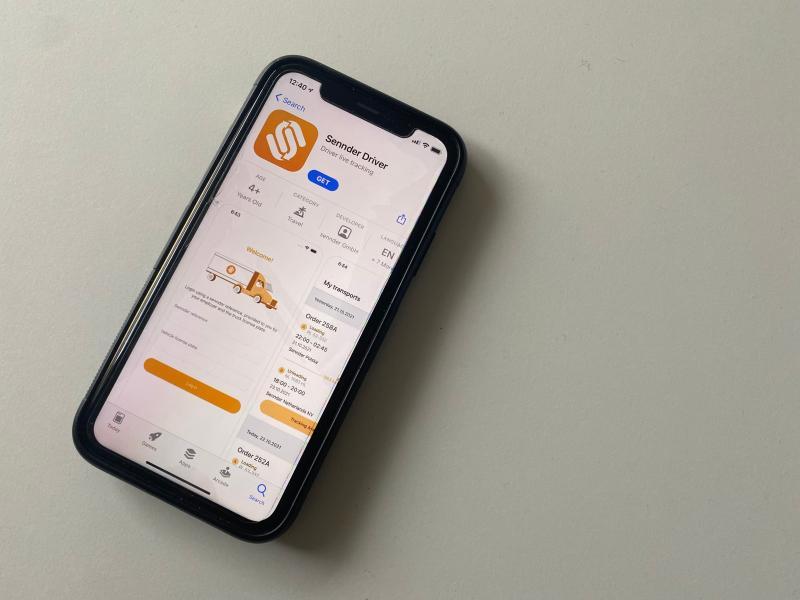Two innovative companies get back on their feet and empower other small businesses, backed by the European Guarantee Fund
It is often said that small businesses are the backbone of the European economy. It’s no wonder. Small and medium-sized enterprises (SMEs) represent 99% of all businesses in the European Union, employing more than 100 million people. But these companies have been hit hard by the pandemic. Between 70% and 80% experienced a serious drop in their revenues in 2020.
“Overnight, sales dropped to basically zero, with the rest of our travellers looking to either postpone or cancel their tours,”says TourRadar co-founder and chief executive Travis Pittman. TourRadar, a travel tech company, operates an online platform that allows you to book multi-day tours in more than 190 countries. The platform brings together more than 2 500 suppliers, including many small tour operators who find it very challenging to market and sell their tours to international travellers. But international travel restrictions forced most of these operators “into hibernation,” says Pittman. “They had to let go a significant portion of their employee base, including local guides and support staff.”

The platform brings together more than 2 500 suppliers, including many small tour operators who find it very challenging to market and sell their tours to international travellers.
The European Investment Bank is supporting the company with €14 million venture debt financing, approved under the European Guarantee Fund, which helps struggling European businesses survive the pandemic, retain employees and even grow. Venture debt pays back like an equity investment, but it does not deprive a startup’s founders of ownership. The loan will enable the company to continue developing its platform, as well as machine-learning capabilities to improve its ranking and searching accuracy.
“This will allow TourRadar to more effectively customise suggestions for each user and connect them more efficiently with the most suitable products,” says Aleksandar Mihajlovic, the European Investment Bank investment officer working on the project.

Adventure awaits: TourRadar offers more than 50 000 tours across the globe
Waking up from hibernation
Tourism has been among the sectors most affected by the pandemic. The number of international passengers dropped from 1.4 billion in 2019 to 400 million in 2020. To get back on its feet, the Vienna-based company had to reinvent the way it does business.
“We decided to open up our platform to online and offline travel agents. Now, they can use one platform to book any of the 50 000 tours we offer,” says Pittman. “This way, agents will be able to find the best local services for their clients, while our local operators will benefit from more exposure.”

International travel restrictions forced most of these operators “into hibernation”.
You may think travel agents are a thing of the past. But, in the US alone, travel advisers are seeing a 76% increase in customers in 2021 compared to before the pandemic. The Washington Post even deemed 2021 “the year of the travel agent”. Information overload and changing travel restrictions are pushing travelers back to travel advisors and agencies. “We see this development as a great opportunity to tap into this large market,” Pittman says.
“The average number of days it takes a person to book their trip, from when they start their search, is 27 days,” says Pittman. “An important goal of ours is to shorten this time as much as possible.”
From spreadsheets to apps
Sennder, Europe’s leading freight forwarder, represents this symbiotic relationship between smaller companies even better. Sennder is focused on short-haul trucking and offers shippers access to their connected fleet of 12 500 trucks, operated by small independent carriers.
The pandemic caused widespread disruption to the sector, but the company proved its resilience. “When EU countries started imposing travel restrictions, many small carrier companies suffered. But thanks to Sennder’s long-term contract with big shippers, their carriers didn’t take such big hits,” says the EIB’s Mihajlovic, who also worked on this project.

The transport sector is far from digitalised. Many small companies still use spreadsheets to organise shipping. Sennder’s software is a step into the future for a very traditional industry.
The European Investment Bank is providing the company with venture debt funding of €35 million to support the development of the company’s freight software, which connects shippers and carriers.
“The transport sector is far from digitalised. Many small companies still use spreadsheets to organise shipping. Sennder’s software is a step into the future for a very traditional industry,” says Mihajlovic. “By focusing on digitalization and automation, they’re making the system more efficient as well as reducing carbon emissions.”
Innovation in the age of COVID-19
According to the 2020 EIB Investment Survey, almost half of EU firms (45%) said that the pandemic had lead them to delay or altogether abandon their investment plans. Thanks to the European Guarantee Fund, TourRadar and Sennder are not among those companies.
To adapt to the green and digital transition, companies will need to continue innovating despite the obstacles presented by the COVID-19 pandemic. These two companies are treading the path, but they are not alone. They are bringing along the small businesses that helped them grow.
